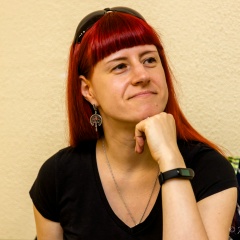Хотела поделиться с вами важной информацией:
Согласно правилам пунктуации, в общем случае перед сочинительными союзами в сложносочиненных предложениях всегда ставится запятая.
Даже если их соединяет союз "и"
Погас свет, и кто-то включил музыку.
При употреблении союзов "и" и "да" в значении «и» это правило не соблюдается и запятая не ставится в следующих случаях:
1) при наличии общего второстепенного члена или придаточной части: В комнате погас свет и кто-то включил музыку; Когда все собрались, погас свет и кто-то включил музыку;
2) при наличии общего вводного слова, обособленного члена или поясняемой части сложного предложения: В общем, выключился свет и заиграла музыка; Как и договаривались, свет потушили и кто-то включил музыку; Действо началось: погас свет и заиграла музыка;
3) если простые предложения являются номинативными (односоставными, выражающими существование предмета или явления): Где я? Тающий свет и негромкая музыка…;
4) если простые предложения — безличные или неопределённо-личные с одинаковой формой сказуемого: Потушили свет и включили музыку;
5) если простые предложения — побудительные, восклицательные или вопросительные и объединены интонацией: Зачем выключать свет и какая будет музыка?
Может быть вам пригодится...
Согласно правилам пунктуации, в общем случае перед сочинительными союзами в сложносочиненных предложениях всегда ставится запятая.
Даже если их соединяет союз "и"
Погас свет, и кто-то включил музыку.
При употреблении союзов "и" и "да" в значении «и» это правило не соблюдается и запятая не ставится в следующих случаях:
1) при наличии общего второстепенного члена или придаточной части: В комнате погас свет и кто-то включил музыку; Когда все собрались, погас свет и кто-то включил музыку;
2) при наличии общего вводного слова, обособленного члена или поясняемой части сложного предложения: В общем, выключился свет и заиграла музыка; Как и договаривались, свет потушили и кто-то включил музыку; Действо началось: погас свет и заиграла музыка;
3) если простые предложения являются номинативными (односоставными, выражающими существование предмета или явления): Где я? Тающий свет и негромкая музыка…;
4) если простые предложения — безличные или неопределённо-личные с одинаковой формой сказуемого: Потушили свет и включили музыку;
5) если простые предложения — побудительные, восклицательные или вопросительные и объединены интонацией: Зачем выключать свет и какая будет музыка?
Может быть вам пригодится...
I wanted to share important information with you:
According to the rules of punctuation, in general, commas are always preceded by compound commas in compound sentences.
Even if the union "and" connects them
The lights went out and someone turned on the music.
When using the unions "and" and "yes" in the meaning of "and" this rule is not respected and the comma is not put in the following cases:
1) in the presence of a common minor member or subordinate part: The light went out in the room and someone turned on the music; When everyone gathered, the lights went out and someone turned on the music;
2) in the presence of a common introductory word, a separate member, or an explained part of a complex sentence: In general, the lights went out and the music began to play; As agreed, the lights were out and someone turned on the music; The action began: the lights went out and the music began to play;
3) if simple sentences are nominative (one-part, expressing the existence of an object or phenomenon): Where am I? The melting light and soft music ...;
4) if simple sentences are impersonal or indefinitely personal with the same predicate form: They put out the lights and turned on the music;
5) if simple sentences - incentive, exclamatory or interrogative and combined by intonation: Why turn off the light and what will be the music?
Maybe you will come in handy ...
According to the rules of punctuation, in general, commas are always preceded by compound commas in compound sentences.
Even if the union "and" connects them
The lights went out and someone turned on the music.
When using the unions "and" and "yes" in the meaning of "and" this rule is not respected and the comma is not put in the following cases:
1) in the presence of a common minor member or subordinate part: The light went out in the room and someone turned on the music; When everyone gathered, the lights went out and someone turned on the music;
2) in the presence of a common introductory word, a separate member, or an explained part of a complex sentence: In general, the lights went out and the music began to play; As agreed, the lights were out and someone turned on the music; The action began: the lights went out and the music began to play;
3) if simple sentences are nominative (one-part, expressing the existence of an object or phenomenon): Where am I? The melting light and soft music ...;
4) if simple sentences are impersonal or indefinitely personal with the same predicate form: They put out the lights and turned on the music;
5) if simple sentences - incentive, exclamatory or interrogative and combined by intonation: Why turn off the light and what will be the music?
Maybe you will come in handy ...

У записи 14 лайков,
0 репостов,
544 просмотров.
0 репостов,
544 просмотров.
Эту запись оставил(а) на своей стене Камилла Керимова


































